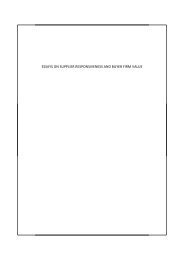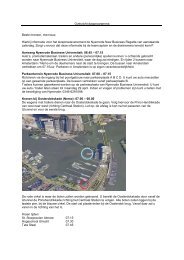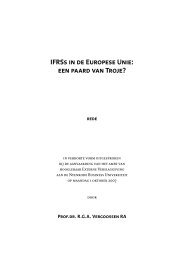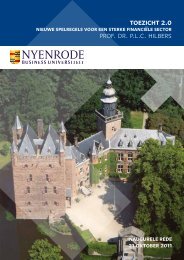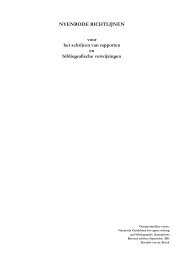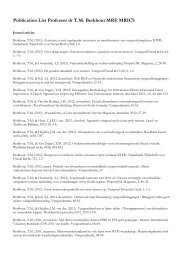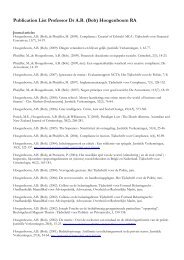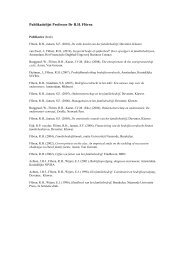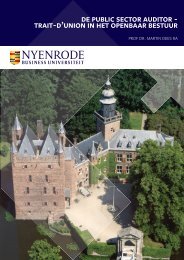pdf - Nyenrode Business Universiteit
pdf - Nyenrode Business Universiteit
pdf - Nyenrode Business Universiteit
Create successful ePaper yourself
Turn your PDF publications into a flip-book with our unique Google optimized e-Paper software.
Chapter 2<br />
The Use of Relative Performance<br />
Evaluation at the <strong>Business</strong> Unit<br />
Manager Level<br />
Preamble to Chapter 2<br />
Chapter 2 presents the first study of this thesis. This study addresses research questions<br />
1 and 2. The first research question is: To what extent is RPE used for the performance<br />
evaluation of business unit managers? This question relates to the empirical puzzle presented<br />
in the introduction: although theory reasons that RPE is sensible for business<br />
practice at that organizational level, it lacks conclusive empirical support. By researching<br />
the prevalence of RPE amongst business unit managers, this chapter studies whether RPE<br />
is a concept with practical relevance.<br />
The second research question is formulated as: Can RPE use amongst business unit<br />
managers be explained from a noise-reduction and/or opportunism-reduction perspective?<br />
Given the fact that RPE is used in practice, the second research question aims to explain<br />
why some organizations use it and others do not. This chapter explains RPE use in terms<br />
of both its noise- and opportunism-mitigating properties. These two explanations are both<br />
derived from prior literature, although the latter explanation has received far less theoretical<br />
and empirical attention in existing research compared to the former explanation.<br />
The current chapter contributes to the literature by extending the empirical evidence on<br />
both explanations. Additionally, using two explanations simultaneously provides a clearer<br />
picture of the effects of the individual explanations, compared to using one explanation in<br />
isolation. Together, these two perspectives provide us with a richer framework in which to<br />
understand organizational reliance on RPE.<br />
13




